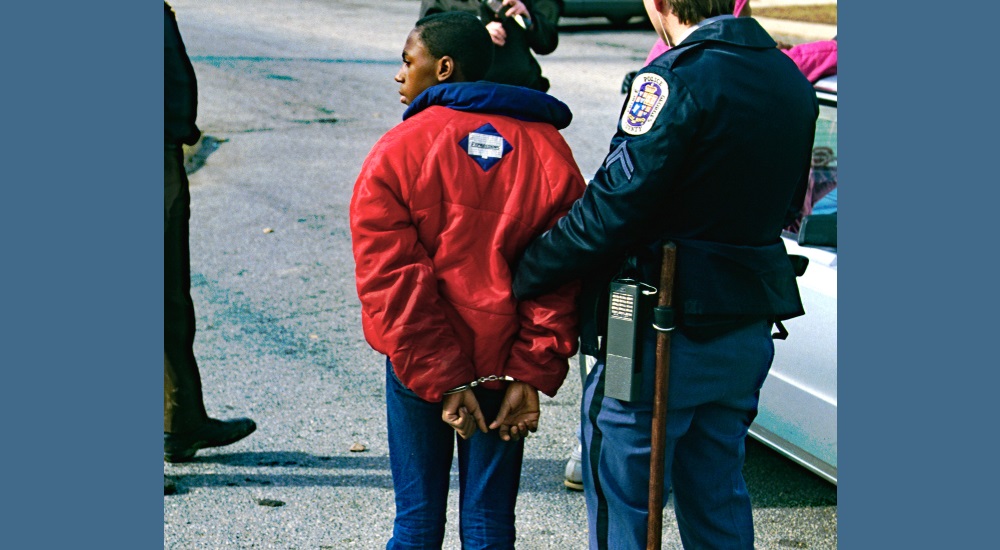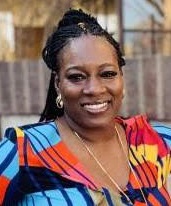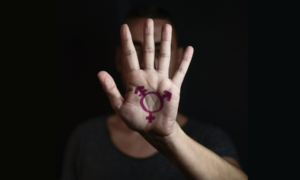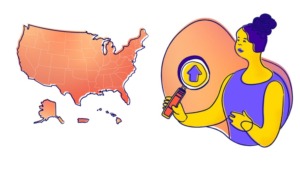 MARK REINSTEIN/SHUTTERSTOCK
MARK REINSTEIN/SHUTTERSTOCK
What replays in my mind is the judge who proclaimed that my then 16-year-old Black client was destined to “spend the rest of his natural life in prison” because he’d appeared before that judge one too many times, including for having stayed out past his group home’s nightly curfew.
Through no fault of his own, that client was a deeply scarred individual. At age six, he was thrust into a foster-care system that, for sure, shores up many children but also lets some kids drown. By the time he was 13, he’d been remanded to a juvenile detention center for taking someone’s cell phone.
The New York City judge who’d projected that my client would end up in prison held true to his threat. That Black teen eventually was sentenced to five to seven years in an adult facility. This, because he’d, again, broken curfew, and he’d been charged in connection with a second-degree robbery.

Ayisha Scales-Bruce
In my 15 years of working with youth who cycle through the criminal justice system — initially as a social worker and, now, as a lawyer — I’ve represented exactly two white clients. Mainly, my clients have been Latinx kids and Black kids like that one whose tragic story I’ve partly shared. Too often, Black and Latinx kids aren’t granted the same allowances, including diversion from incarceration, that are given to white youth deemed guilty of the very same infractions.
And that’s largely because Black and Latinx youth, for many who run our justice system, are “super predators,” to borrow a conservative misnomer, not children but monsters. That’s a fundamental flaw that’s fixable.
Part of the solution lies in projects such as Ambassadors for Racial Justice, which trains juvenile defenders across the nation on how to combat systemic racism through case advocacy, community activism and legislation. Georgetown Law Professor Kristin Henning and National Juvenile Defender Center Executive Director Mary Ann Scali, who co-founded the ambassadors, have been battling racial inequities in the juvenile legal system for more than 25 years.
Defense Lawyers, Judges Should Strive for Equity
Before I dedicated my adult life to working to undo the worst parts of that system, I’d partly grown up in the foster care system and cycled through juvenile courts as a delinquent youth. I know that attorneys, advocates, courts and judges can function as watchdogs. They can be a buffer against a system still grappling with its longstanding failure to dispense equal justice under the law. They can work harder at measuring how lived experiences, including inequalities, play out and result in too many Black and Latinx youth landing in front of a judge.
As a part of that effort to change things, the Georgetown Law-based training project for juvenile defense lawyers is grooming them in the fine points of litigating, from arrest through court rulings and beyond, in light of systemic racial issues. With that overlay, this 12-month program aims to develop in trainees the confidence needed, across the wide-ranging judicials rules of our nation, to litigate cases involving illegal searches and seizures and search warrants; to write pleadings and motions examining and spotlighting issues of race; to advocate for culturally competent alternatives to incarceration; to address the overcharging and transfer of youth to adult courts; and to challenge the arrests and criminalization of youth for disrupting schools, having a temper tantrum, sagging pants, not doing homework and other matters that do not merit intervention by cops or courts.
Previous ambassadors have spearheaded and helped write legislation, including, in 2020, a Nevada bill to stop automatically sending youth charged with certain felonies to adult courts; trained judges, prosecutors and defenders on racial bias in the system; created school-based prevention programs; and become leaders on issues of racial justice in their respective states. An ambassador in California, for example, is developing a residential college program for formerly and currently incarcerated youth. (This, in light of and in contrast to such facts as 66% of justice-involved in the South being school dropouts, according to one study.)
Foster Care, Detention Experiences Shaped My Lawyering
Before deciding to practice law, I’d seen firsthand what happens when a child does not have a strong, culturally informed advocate in his or her corner. While working as a social worker in a public defender’s office, I saw how baseless fears of Black youth determine whether a child is transferred to an adult court; and how judges and probation officers, collaborating and conspiring, arbitrarily send youth to detention for breaking curfew, not doing homework or having social challenges in school — even though the laws before them did not allow for that. I’ve found no research supporting the notion that these tactics actually teach youth skills required for normal adolescent development.
What I’ve seen is too many Black youth remaining jailed while awaiting trial because their families could not afford high bail; and school resource officers summoning police to handle Black children as young as six years old.
I’ve watched entire families evicted from public housing because a member of that family got caught up in the juvenile justice system; public housing regulations allow that travesty.
I’ve watched Black youth be forced into alternative schools or made to repeat a grade because credits they earn while in juvenile detention don’t count in certain states.
I continue to witness Black youth being shifted from foster homes and group homes to juvenile or adult facilities, where some have been abused physically and/or sexually and some spend the bulk of their detention in solitary confinement. From there, in so many ways, the downward spiral of these young people often continues.
The ambassadors project is training only a fraction of juvenile defenders — so many more are needed — to help ensure justice is fairly dispensed for youth of color. We are outraged by the many, many harms we witness. So, we fight.
Social worker-turned-attorney Ayisha Scales-Bruce is the Racial Justice and Juvenile Defense Fellow at Georgetown Law School Juvenile Justice Clinic.





























